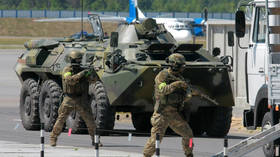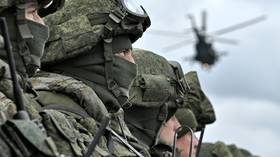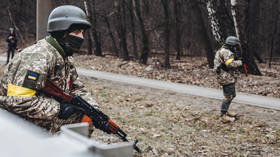Belarus on high terrorist alert

Belarusian armed forces and special services have been placed on high alert to swiftly respond to and contain any threats from neighboring states, Foreign Minister Vladimir Makei said in an interview with Russia’s Izvestia newspaper on Friday.
“The head of our country held a series of meetings with law enforcement agencies, and a counter-terrorist operation regime was introduced,” Makei told the paper, without elaborating on the scope of the alleged declaration. As of Friday morning, there were no official public announcements about the move from the security services.
Belarusian President Alexander Lukashenko revealed on Monday that he had ordered the State Security Committee of Belarus (KGB) to conduct “necessary measures of a counter-terrorist nature,” but did not announce any changes to the nationwide threat level.
“There was information that some neighboring countries were planning provocations, as far as involving the seizure of certain areas of the Belarusian territory,” Makei explained, adding that “no such signal should be left without an adequate response,” and thus the country's security forces are now ready “to respond to any threats that may arise from neighboring countries.”
Lukashenko declared this week that Belarus would form a joint security force with Russia in response to “aggravation” from Ukraine and the West. With officials in Minsk accusing Ukraine of blowing up bridges and amassing tens of thousands of troops along the Ukraine-Belarus border, Lukashenko claimed that “Kiev is not just discussing, but is planning an attack on the territory of Belarus” at the behest of its Western backers.
While Belarus allowed Russian troops to use its territory at the beginning of Moscow’s military operation in Ukraine, Lukashenko reiterated last week that his country’s role in the conflict is limited to self-defense and denying Ukraine the ability to “shoot Russians in the back from the territory of Belarus.”
Ukrainian President Vladimir Zelensky rejected the accusations, and in turn claimed that the warnings are actually cover for a possible offensive by Minsk, urging G7 leaders on Tuesday to send “international observers” to his country’s border with Belarus.














